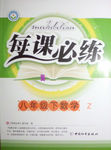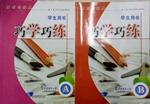题目内容
The criminal was condemned ______ in prison, spending all his life.
A. to staying B. to stay C. staying D. and stayed
A
解析:
略

 每课必练系列答案
每课必练系列答案 巧学巧练系列答案
巧学巧练系列答案Look closely at ,your hands-are they clean? It doesn't matter how many times you was your hands. They're still crowded with microbes, which are also called "germs" or "bacteria". Microbes are everywhere. But don't worry-most microbes don't harm you. and many actually help you stay alive.
Now, scientists say the microbes that live on our hands could be used in a surprising way: fighting crime.
When police visit the scene of a crime, they often look for fingerprints to try to identifythe criminal. But according to a recent study, investigators could even use microbes to help break a criminal case.
Every person has his or her own set of microbes that live on their hands, according to scientists at,the University of:Colorado. That means the mix of different kinds of microbes on everybody's hand is unique-much like one's fingerprint.
The scientists wanted to know whether this microbe mix could be used as a new kind of fingerprint-especially in a crime scene where fingerprints might be hard to find. And policemen use forensics such as studying fingerprints to identify the criminal.
"Microbe fingerprints are harder to hide," said Noah Fierer, one of the scientists.
"You can't sterilize(为……杀菌) a surface just by wiping it off. "
His team compared the bacteria on the hands of 273 people with the bacteria found on each person's computer keyboard. For the study, the keyboards had been used only by the people who were being tested. The study showed that the mix of microbes from each per- son's hands matched the mix of microbes on that person's keyboard. The scientists were easily able to tell the 273 people apart-just by looking at their keyboards.
But there are a lot more than 273 criminals. Other scientists wonder whetherthe microbe fingerprint can really be that useful.
Fierer agrees that scientists have a lot more work to do before the microbe fingerprint will be a useful tool.
【小题1】According to the passage, microbes on people's hands_____
| A.do more harm than good | B.are easy to get rid of |
| C.are almost the same | D.might help find crimes |
| A.the scientific test used by police |
| B.a new kind of fingerprint |
| C.a kind of bacteria'in people's hands |
| D.a kind of newly invented keyboard |
| A.They found the criminal among the 237 people. |
| B.They could tell who had used which computer. |
| C.Computer keyboards couldn't keep people's microbe fingerprints. |
| D.People's characters could be identified by the keyboards they used. |
| A.your microbes may give you away |
| B.scientists will come to a clear conclusion soon |
| C.many scientists think microbe fingerprints useless |
| D.the microbe fingerprint has been used in many cases |
| A.the importance of fingerprints | B.how to clean our hands |
| C.the usefulness of microbes | D.different germs on our hands |
Around the World in Eighty Days is a classic Adventure novel by Jules Verne. The story starts in London in 1872. One day in the Reform Club, Phileas Fogg, a wealthy gentleman, accepts a wager(赌注) for £20,000, which he will receive if he travels around the world in 80 days.
Phileas Fogg sets off immediately, with his servant Passepartout. They reach Suez(苏伊士) quickly. While landing in Egypt, he is watched by a British detective named Fix, who is in search of a bank robber. Because Fix mistakes Fogg for the criminal, he follows secretly, as they are getting on a ship to Bombay.
After more than 20-days of travelling, they arrive in San Francisco, and then get on the train to New York. During that trip, the train is attacked by Indians, who take Passepartout away. With some soldiers’ help, Fogg succeeds in freeing his companion. To make up for the lost time, Fogg and his companion hasten on to New York, and catch the steamer for the crossing of the Atlantics. They arrive in Ireland in time to reach London before the deadline. However, once on British soil again, Fix arrests Fogg. Although the misunderstanding is quickly cleared up—the actual bank robber had been caught several days earlier. Fogg has missed the train and returns to London five minutes late, sure that he has lost the wager.
However, the next day Fogg learns from the priest that he is mistaken in the date, which he thinks Sunday but which actually is Saturday, due to the fact that they gained a full day on their journey around the globe, by crossing the International Date Line. Fogg immediately sets off for the Reform Club, where he arrives just in time to win the wager.
【小题1】The reason that Fix wants to arrest Phileas Fogg is that .
| A.Phileas Fogg is the bank robber whom Fix is trying to catch |
| B.Phileas Fogg doesn’t have a passport for his travels |
| C.Fix mistakenly takes Phileas Fogg for the bank robber |
| D.Fix intends to prevent Fogg from winning the wager |
| A.travelling across the continent of America |
| B.rescuing his companion from the Indians |
| C.waiting for the ship back to London |
| D.getting rid of the pursuing of Fix |
| A.No. Because he doesn’t get to the Reform Club before the deadline. |
| B.Yes. Because he is not the bank robber; it’s a misunderstanding. |
| C.No. Because he wastes too much time during his trip. |
| D.Yes. Because he arrives at the Reform Club before the deadline. |
Here is a true story about a famous man who worked in the White House and a criminal. They once faced the same thing: their mother gave them apples when they were young.
The criminal said: one day, my mother brought some apples and asked my brother and me: “Which do you want?” “The reddest and biggest one,” my little brother said. My mother stared at him and said to him angrily: “You should learn to give the good things to others; you shouldn’t always think of yourself.” Seeing this, I suddenly changed my idea and then said to my mother: “Mum, please give me the smaller one and give the bigger one to my little brother.” Hearing my words, my mother was very happy. She kissed me on my face and gave the reddest and biggest apple to me as a prize. From then on, I learned to tell lies, fight, steal and rob. In order to get what I wanted, I played hard. As a result, I was sent into prison.
The famous man from the White House said: One day, my mother brought some apples. She said to my brother and me: “You all want the reddest and biggest one, right? Well, let’s have a competition. Now I divided the grassland in front of the gate into two and I will give one to each of you and you must shear(修剪) it well. And I will give the reddest and biggest apple to him who does it the most quickly and best.”
After the competition, I won and I got the biggest apple. In our family, as long as you want to get the best things, you must take part in competition. I think it is fair. No matter what you want, you must pay lots of efforts.
【小题1】The criminal got the reddest and biggest apple because .
| A.he told the truth that he wanted a smaller one |
| B.he knew how to make his mother happy from her answer |
| C.elder brother should of course have the bigger one |
| D.his mother loved him more than she loved the younger brother |
| A.it’s wrong to ask children to choose apples when they are not old enough |
| B.it’s important to make children aware that no matter what they want, they must pay work |
| C.it’s wrong to ask children not to always think of themselves |
| D.it’s always necessary to have a competition when we give children apple |
| A.organizing it in the order of time |
| B.making a comparison between two men |
| C.providing some scientific information |
| D.describing it in the order of space |
| A.we should always try to win competitions which can bring us a lot |
| B.in order to get what we want, we should play hard |
| C.a mother’s educational method has a great influence on a child’s growing |
| D.giving children apples will lead them to become criminals |
People have been burying the dead at Salem’s Hope Cemetery since 1833. The place is filled with old gravestones and gothic mausoleums(哥特式陵墓), the spirits of the dead hanging over the land like an early morning fog.
Keeping watch, a few steps from the road with her skirt over the pedestal (基座), is Goldie Belle Taylor, her face weathered but otherwise in good condition. On this day, she is holding a bunch of pink rises because Goldie Belle always holds flowers. Someone makes sure of that.
“And she has had fresh flowers in her hands for the last 150 years.” Karen Biery lives in Damascus, about five miles west of Hope Cemetery. She’s written a book based on the legend of Goldie Belle Taylor titled Believe. In 1886, at the age of two, young Goldie Belle used her hands to sop up (抹去) the left over elderberry juice from her father’s iron kettle. She died not long after from poisoning. She was the love of her dad’s life, and he was so upset that he sold the family farm to buy the Italian made statue, which today marks her grave.
At first, it was her father who brought the flowers and laid them in her hands. When he died in 1896, the flowers kept coming. Her flowers are different per season. Why do the flowers keep miraculously appearing? People have tried to find out by having camped by the statue, but not even the groundskeepers have been able to catch the criminal.
It’s said that a fairy arrives at Hope Cemetery looking for the grave of her birth mother. She comes across Goldie Belle’s statue.
【小题1】The underlined word “that” in paragraph 2 probably refers to________.
| A.her face in good condition |
| B.her bunch of pink roses |
| C.Goldie Belle Taylor is holding pink roses |
| D.Goldie Belle Taylor always holds flowers |
| A.her father was poisonous | B.the iron kettle was poisonous |
| C.elderberry juice was poisonous | D.it was her father that hated her |
| A.usually change | B.were stolen |
| C.are no longer fresh | D.come from a criminal |
| A.A fairy brings the flowers. | B.The mystery of Goldie’s flowers. |
| C.What happens to the girl? | D.How do the flowers get there? |